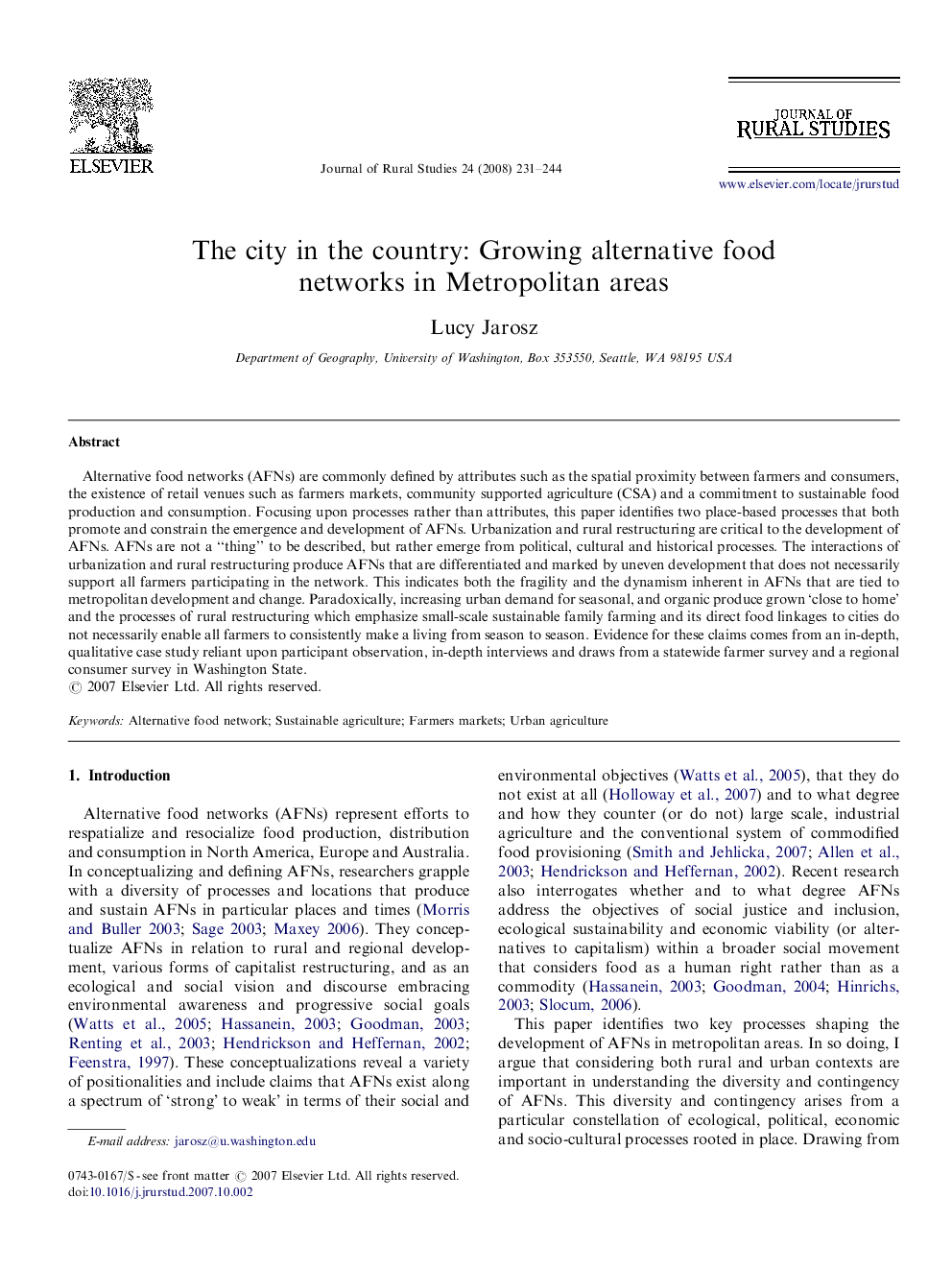| Article ID | Journal | Published Year | Pages | File Type |
|---|---|---|---|---|
| 92577 | Journal of Rural Studies | 2008 | 14 Pages |
Alternative food networks (AFNs) are commonly defined by attributes such as the spatial proximity between farmers and consumers, the existence of retail venues such as farmers markets, community supported agriculture (CSA) and a commitment to sustainable food production and consumption. Focusing upon processes rather than attributes, this paper identifies two place-based processes that both promote and constrain the emergence and development of AFNs. Urbanization and rural restructuring are critical to the development of AFNs. AFNs are not a “thing” to be described, but rather emerge from political, cultural and historical processes. The interactions of urbanization and rural restructuring produce AFNs that are differentiated and marked by uneven development that does not necessarily support all farmers participating in the network. This indicates both the fragility and the dynamism inherent in AFNs that are tied to metropolitan development and change. Paradoxically, increasing urban demand for seasonal, and organic produce grown ‘close to home’ and the processes of rural restructuring which emphasize small-scale sustainable family farming and its direct food linkages to cities do not necessarily enable all farmers to consistently make a living from season to season. Evidence for these claims comes from an in-depth, qualitative case study reliant upon participant observation, in-depth interviews and draws from a statewide farmer survey and a regional consumer survey in Washington State.
